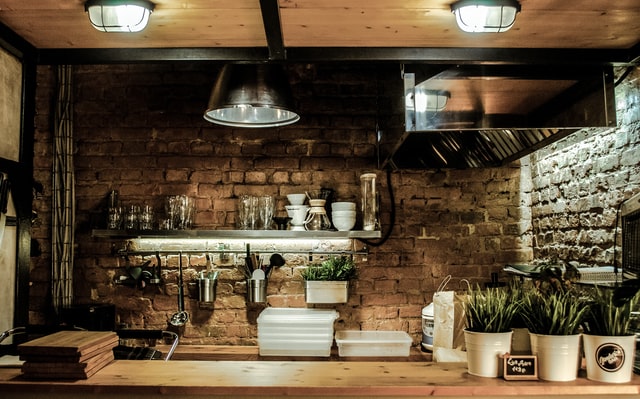Kitchen chimneys are an excellent way to limit the amount of dust and smoke that comes from the kitchen. The chimney in the kitchen serves a critical purpose in the cooking process. It can assist you in getting rid of all of the steam and smoke that has accumulated in the kitchen. Indian cuisine makes extensive use of spices and oil, resulting in the release of large amounts of fumes and aromas into the air.
A kitchen chimney can assist you in keeping noxious odors out of your kitchen and the rest of the house. A greasy, soiled chimney might detract from the appearance of the cooking area. It’s also really unsanitary. The fact that grease collects inside of the filters makes it a potentially dangerous situation because it can cause a fire. The most recent kitchen chimneys are equipped with intriguing features such as an auto-cleaning function, which makes them particularly appealing. However, they are typically more expensive.
How to Clean Greasy Kitchen Chimney?
- The kitchen chimney is significant elements in our cooking environment. They keep our kitchens clean by removing grease and cooking steam, as well as pollution from the cooking area.
- Among the cleaning solutions used by the majority of homeowners to clean their stove grease and chimneys at home, baking soda has emerged as the preferred choice. Its moderate alkaline and abrasive properties aid in the removal of oil and grease stains without causing any damage to the surfaces that are cleaned with it.
- This kitchen staple has long been popular for its cleaning properties. Baking soda can be described as a salt containing sodium bicarbonate, which when combined with water can be used to remove stubborn stains.
- In a mixing basin, 2 teaspoons of baking soda and 2 tablespoons of water should be combined. To prepare the paste, mix all of the components carefully. It would always be applied on the surface of the chimney. Let it to stand about 5 minutes until wiping it away with an aqueous paper towel to remove it.
- Caustic soda is a common approach for cleaning the grease from the kitchen chimney. Because of the caustic soda’s acidic nature, it is capable of dissolving fats, oils, grease, and organic compounds.
- According to conventional wisdom, the moderate abrasive, acidic, and disinfecting properties of vinegar make it a useful multi-purpose cleaning product. Using vinegar to clean your kitchen in a jiffy is also a good idea. To accomplish this, soak a paper towel or tissue in the vinegar solution and scrub the surface. The following instructions will show you how to clean grease from your kitchen chimney using vinegar.
- It is possible that the liquid surfactants found in dishwashing fluids will assist in unblocking and clearing oil and grease deposits from the filtration systems of the chimney.
- Using liquid soap to clean your chimney. It contains cleansing ingredients that can aid in the removal of grease and oil from the chimney’s filters, which is beneficial. Using a sponge, dip it into liquid soap and then use it to scrub the chimney with the soapy liquid. Alternately, you can take the filters out and soak them in water for approximately 2 hours after cleaning them with dish soap liquid.
- When detergent powder is mixed with boiling water, it can also be used as a cleaning solution to remove grease and oil stains from surfaces. When detergent powder is combined with boiling water, it can aid in the removal of grease and oil stains. Surfactants, such as those found in detergent, are effective at removing grease.
- Remove the filters and prepare a stainless steel tub, filling it with hot water and setting it aside. Fill the container with 3 tablespoons of detergent and bring the water back to a rolling boil. Then, set the filters in a pot of hot water. Grease and oil will go away almost immediately. Filter them under running water, then scrub them with a damp cloth. After allowing it to dry completely, insert the filters into the fireplace and close the lid.
- Paint thinner is an efficient mixture for eliminating the tenacious oil and grease stains from the surface of the chimney’s walls and ceiling. It’s a powerful cleaning agent that can be used in conjunction with acetone, turpentine, and toluene, as well as various mineral spirits.
The following are the disadvantages of unclean and oily chimneys:
- It’s not a nice sight.
- Grease accumulates in filters over time and causes them to congest. As a result, the sucking power of the chimney will be reduced.
- Oil and grease can leak out of the stove’s filters if they are not properly maintained. As a result, a fire in the house could result.
- As a result of the limited effectiveness of chimneys, steam and smoke can occasionally be seen rising from the cooking area. In addition, the area around the stove has been filthy as well.
- In the event that you are using a mesh-based filter but are not frequently cleaning it, Grease and oil can clog filters, causing them to become inoperable.


